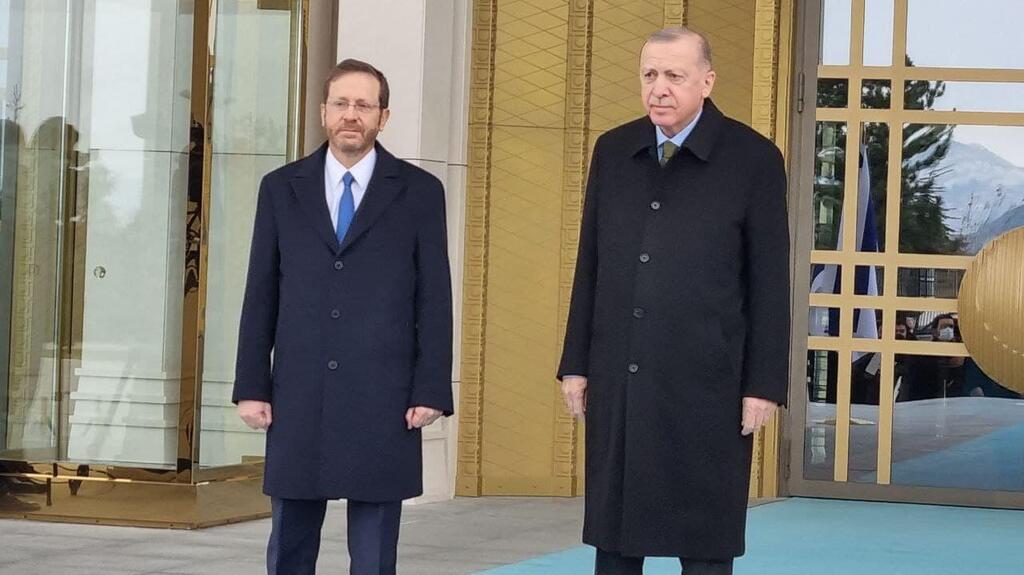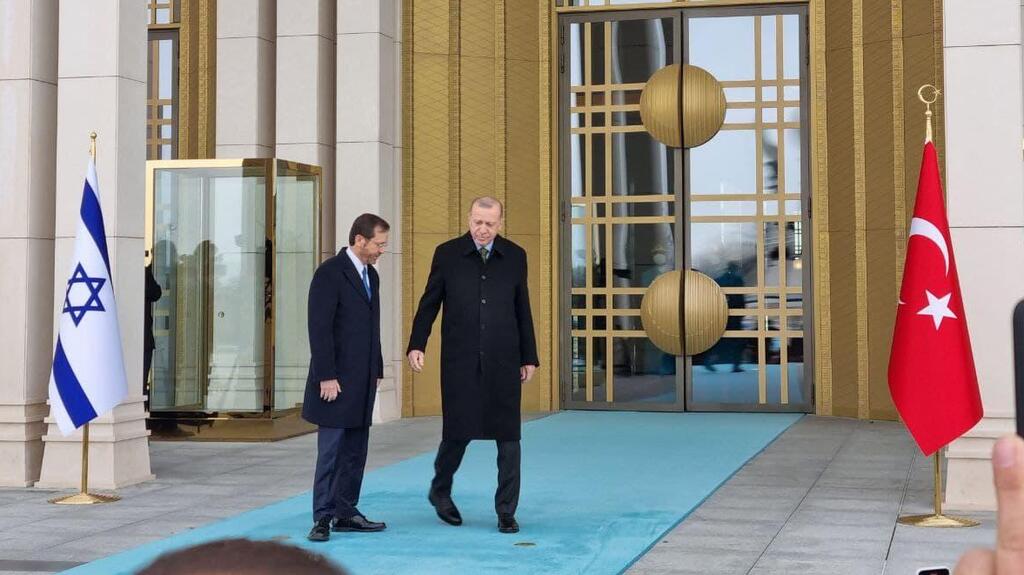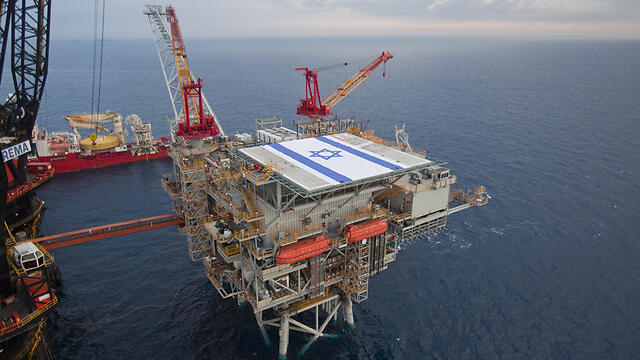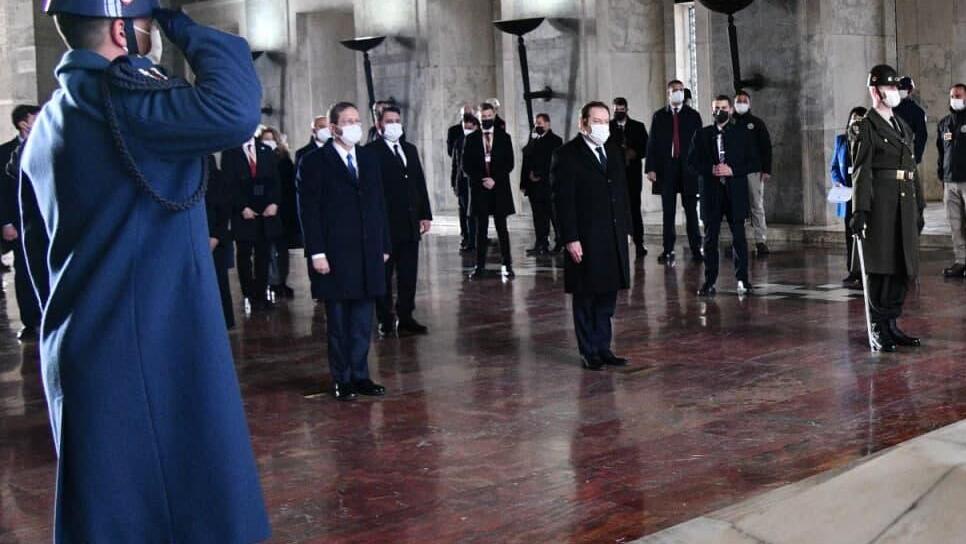President Isaac Herzog on Wednesday was greeted with a rousing fanfare when he arrived Turkey's capital of Ankara, becoming the first Israeli leader to visit in 14 years, as the two countries move to turn a new page in their troubled relationship.
Escorted by a Turkish mounted color guard, Herzog arrived at the Presidential Complex in Ankara. He was greeted by Erdogan and a military honor guard, while a band played the Israeli anthem for the first time since 2008.
4 View gallery


President Isaac Herzog and Turkish President Recep Tayyip Erdogan
(Photo: Itamar Eichner)
The two then entered a private room for talks, following which Herzog is set to travel to Istanbul for meetings with Turkey’s Jewish community there.
"We will not agree on everything, and the relationship between Israel and Turkey has certainly known ups and downs and not-so-simple moments in recent years," Herzog told reporters at Tel Aviv's Ben Gurion airport. "But we shall try to restart our relations and build them in a measured and cautious manner, and with mutual respect between our states," he said.
“I always emphasize that my vision is that Jews, Muslims, and Christians will live in peace in our region in a manner that will bring them prosperity and perfect lives.
“My visit is completely coordinated with Prime Minister Naftali Bennett and Foreign Minister Yair Lapid and their offices, and I hope that in the wake of my visit, a serious process will begin with Turkey, an in-depth dialogue at various levels, and that ultimately we will see, so I hope, progress in our relations and positive results. Thank you very much, everyone.”
4 View gallery


President Isaac Herzog and Turkish President Recep Tayyip Erdogan
(Photo: Itamar Eichner)
In Istanbul, a group of about 150 people, mostly members of pro-Islamist groups, protested Herzog's visit, chanting anti-Israeli slogans and holding up banners calling the Israeli president a "killer." The protesters included members of the Turkish Islamic relief group IHH, which organized the Gaza-bound flotilla that broke the Israeli blockade in 2010.
One particular area of interest for Turkey and Israel is natural gas. Erdogan has said the visit will herald a "new era" and that the two countries could work together to carry Israeli natural gas to Europe, reviving an idea first discussed more than 20 years ago.
Gas supplies from the Mediterranean could ease European dependence on Russian gas, a hot topic following Russia's invasion of Ukraine and subsequent calls from European leaders to reduce the continent's reliance on Russian gas.
Plans for a subsea pipeline from the east Mediterranean to Europe, excluding Turkey, have stalled after the United States expressed misgivings in January.
A senior Turkish official said Russia's invasion of Ukraine had shown that concrete steps were needed to diversify energy sources in the market.
"It is critically important to transport gas resources in Israel to Turkey and from there to European markets," the official said. "It should be a critical and supportive step for Europe in terms of resource diversity. Turkey is ready to take the necessary steps and do its part in this regard."
Turkey and Israel were once close allies, but the relationship frayed under Erdogan, who is an outspoken critic of Israel’s policies toward the Palestinians. Israel, for its part, has been angered by Erdogan’s embrace of Hamas, the militant group that controls the Gaza Strip. Israel considers Hamas a terrorist group.
The countries withdrew their ambassadors in 2010 after Israeli forces stormed a Gaza-bound flotilla carrying humanitarian aid for the Palestinians that broke an Israeli blockade. The incident resulted in the deaths of nine Turkish activists.
Relations broke down again in 2018 when Turkey, angered by the U.S. moving its embassy to Jerusalem, once more recalled its ambassador from Israel, prompting Jerusalem to also recall its envoy.
The two countries have not so far reappointed ambassadors.



